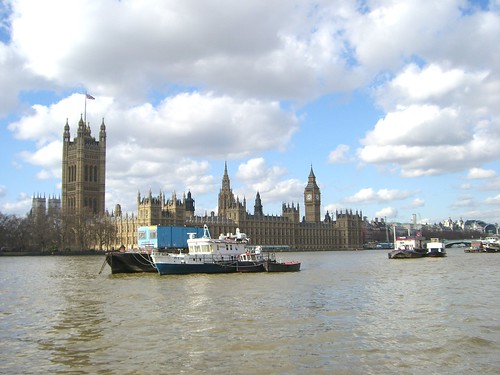From Professor Share in London:
Farewell to the Lords was Thursday’s headline in the Times of London, as the lower house of Parliament voted to alter fundamentally the composition of the House of Lords, the UK’s largely perfunctory upper house. This week’s advisory vote instructed the government to draw up legislation to make the upper house an entirely elected body (at present the body contains mostly appointed members).
There are too many ironies and paradoxes surrounding this vote to describe here, so I’ll highlight just a few. First, Labour included reform of the Lords as part of its ambitious (and largely achieved) set of constitutional reforms. After all, the Lords was long a redoubt of the Conservatives, and was viewed by Labour as an anachronistic vestige of upper class privilege. However, once in power Blair backed away from an elected upper house, fearing that it could weaken the power of the Commons (and its massive Labour majority). He also may have realized that his power to appoint Peers (members of the Lords) gave him powerful and relatively cost-free patronage opportunities. Blair’s government came to favor an upper house with some elected members and some appointed ones (Blair favored and voted yesterday for a 50/50 split), but with the erosion of support for the government, Blair lost control over the reform agenda. The opposition Liberal Democrats, and increasingly even the Conservative Party, tried to outflank and embarrass Labour by calling for either a mostly or an entirely elected upper house. They were supported by many Labourites who favored an all or mostly-elected body. An earlier government attempt to pass a Lords reform failed when members of the Commons split among the various options (all appointed, various mixtures, all elected).
Yesterday’s vote for an entirely elected upper house was entirely unexpected. The size of the majority (337-224) makes it virtually certain that legislation on Lords reform will pass relatively soon, especially since the measure was supported by members of all parties. The Labour leadership first asked Commons members whether they wanted to keep the upper house at all (they did, overwhelmingly), whether they wanted a variety of mixtures of appointed and elected (80/20, 60/40, 50/50, 40/60), all of which were rejected. The members then approved a measure that would produce an upper house with 80% of the seats elected, seemingly backed by the Labour leadership (though Labour members were given a “free vote” on this issue). The shocker was that a majority then passed a measure to create an entirely elected upper house, followed by measures to immediately eliminate the 92 remaining hereditary peers (the bulk of the hereditary peers were eliminated under an earlier Blair reform). The House of Lords will likely use its limited power to delay the bill for a year, but it can’t stop it, and the UK has no supreme court to overturn the measure.
What may not be evident from news coverage in the US is that Labour plans to use proportional representation for elections to the Lords, with elections being held at the same time as European Parliament elections. That will greatly favor the Liberal Democratic Party, the UK’s third party that has long been punished by single-member district voting. However, the unexpected outcome of an entirely elected House of Lords (it will have about 540 members) combined with PR voting means that the upper house will now be far more representative than the lower house! Will it be possible to keep an elected and more representative upper house subservient to a less representative lower house? In most parliamentary democracies the more powerful house is the most representative one.
Of course, the government can continue to name Lords, but they will no longer automatically get seats in the upper house (the name of the upper house will almost certainly be changed).
In the UK simple majorities in the lower house can carry out major constitutional changes with relatively few checks. However, many fear that the creation of an elected upper house may actually endanger the House of Commons’ supremacy within the UK political system.

